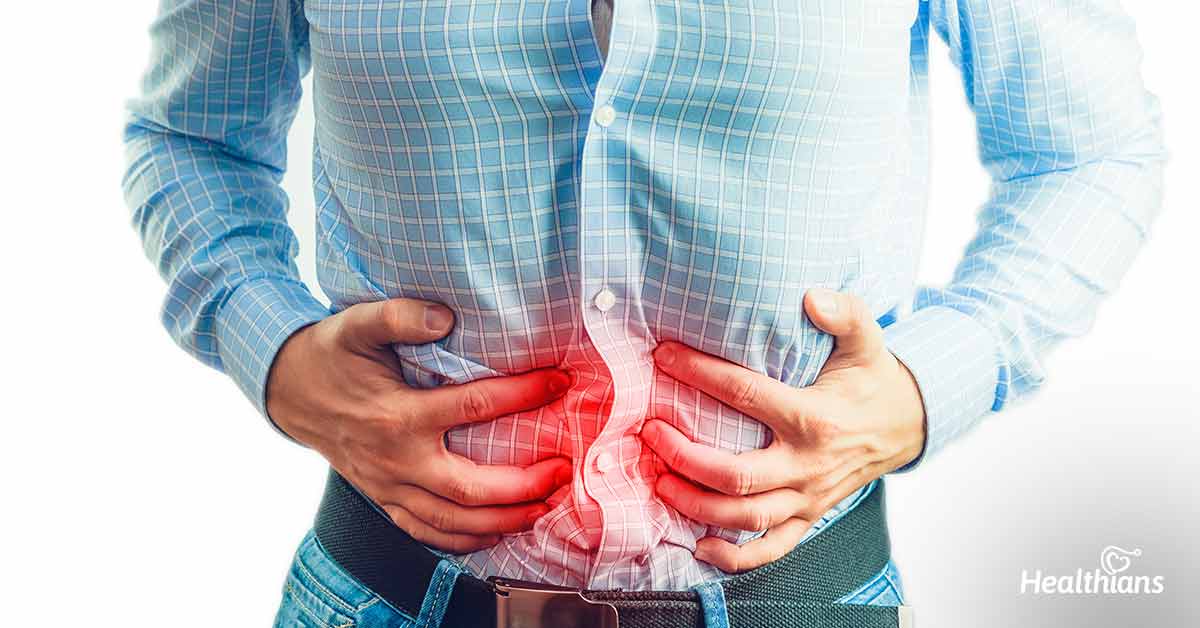Contributed by: Healthians Team
Healthy digestion is regarded as one of the cornerstones of health because of its vital role in nutrient absorption, as well as the elimination of wastes. Unfortunately, a large number of recovered people in the second wave experience digestive issues such as:
- Bloating
- Indigestion
- Acidity
- Abdominal pain
- Gaseousness
- Bloating
- Diarrhea
- Constipation
- Acid Reflux
- Vomiting
- Flatulence
- Irritable bowel syndrome
Doctors say that the surge in associated digestive issues is linked with the use of a variety of medication combinations used for the treatment of the deadly virus. If not dealt with swiftly, they can become chronic, thereby increasing the risk of more serious gastrointestinal disorders. Therefore, once you’ve recovered from COVID-19 it is important to take care of your gut health throughout the healing period.
Experiencing digestive issues while COVID-19 recovery? Read on to know how to tackle digestive issues after recovering from Covid.
Tips to keep your gut health intact
Here are some of the most significant ideas on how to improve digestion to get you started.
What To Eat?
The temptation to have oily curries, fried pakoras, pizza, and samosas may be higher after your hospital stay. However, your gut may not be too pleased when you binge on that processed packet of noodles. Limit the intake of bloat-inducing foods as it may lead to exacerbation of irritable bowel syndrome, in the recovery phase after the Covid infection. Instead, aim to drink that boring bowl of soup that makes your stomach feel happy, and those vegetables, fruits, fiber-rich and readily digestible foods. They are light on the stomach and leave you feeling energized all day while maintaining a healthy gut.
Which Oils Should You Use?
Avoid using mustard oil, peanut oil, or butter since they cause your digestive system to work harder, resulting in increased body heat. Use lighter oils like olive or sunflower oil instead, which are simpler to digest.
What Not To Eat?
Outside food is strictly prohibited. Even home-cooked ‘junk’ food like bhelpuri, bread pakora, Chinese cuisine, and so on must be avoided. These are difficult to digest and can induce acidity and flatulence, as well as exacerbating existing problems. Say goodbye to chips, white bread, chocolates, and pastries. Consume carbonated beverages in moderation or not at all as they contain high amounts of carbon dioxide that can get trapped in the digestive system to cause gastrointestinal ailments.
Stay Hydrated
Stay hydrated throughout the day, as it aids the digestive system in digesting fibers and lipids. Water also keeps you fuller for longer, reducing your chances of bingeing on harmful food. Increase your intake of fluids by consuming more water and non-caffeinated beverages. Incorporate fruits and veggies having high water content in your diet, such as watermelon, cucumber, celery, tomatoes, etc.
Consume Probiotics
Probiotic pills have been shown to help persons with digestive problems reduce symptoms of digestive issues. This is due to the fact that they contain good bacteria that boost the bacterial habitat in the gut.
Physical Exercise
Say goodbye to your sedentary lifestyle. Mild physical activity has been shown to help eliminate gas from the gastrointestinal tract. Yoga exercises that apply extra pressure on your abdomen can also help with digestion and gas elimination. Excess gas and bloating can also be reduced by deep breathing.
Eliminate Stress
Stress and anxiety have an impact not only on your mental health but also on your gut, producing an increase in stomach acids and indigestion or making you feel nauseated. Meditation, deep breathing, and exercise are all effective methods for reducing stress and maintaining a healthy gut.
Seek Help
During your post-Covid recovery period, it is important to stay in touch with your health care provider, and if you notice a rise in gastrointestinal symptoms, call your doctor at the earliest for timely care.
Closing Thoughts
The sheer number of changes required can be overwhelming, so take it one step at a time, beginning with the simplest and smallest adjustments and working your way up to the more significant ones. Begin by ditching the habits that are bad for digestion like skipping meals, overeating, eating too quickly without properly chewing food, eating at irregular hours, drinking too much coffee and energy drinks, taking excessive amounts of alcohol, smoking, and going to bed soon after meals.
In addition to making these changes to your diet, you can improve your digestion by adding herbs, spices, oats, and other natural components to your diet. Turmeric, ginger, garlic, mint, cinnamon, and apple cider vinegar are all good options to aid digestive juices.




